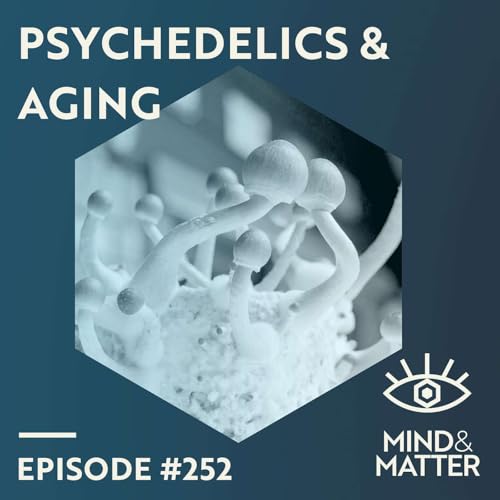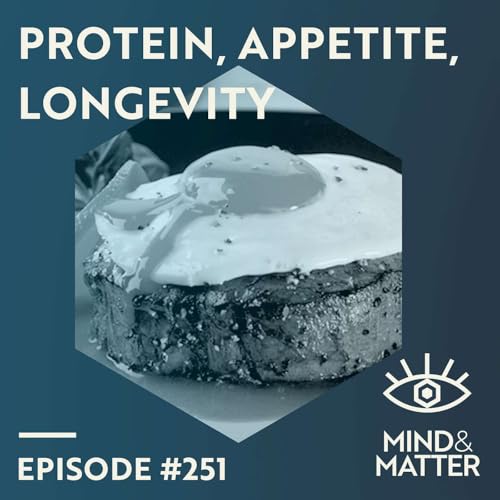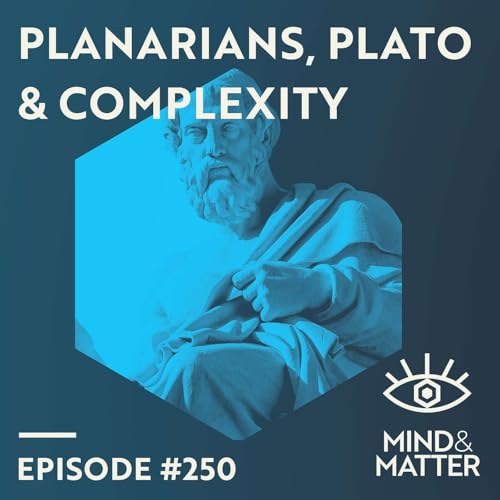
Mind & Matter
Échec de l'ajout au panier.
Échec de l'ajout à la liste d'envies.
Échec de la suppression de la liste d’envies.
Échec du suivi du balado
Ne plus suivre le balado a échoué
-
Narrateur(s):
-
Auteur(s):
-
Nick Jikomes
À propos de cet audio
Whether food, drugs or ideas, what you consume influences who you become. Learn directly from the best scientists & thinkers alive today about how your mind-body reacts to what you feed it.
The weekly M&M podcast features conversations with the most interesting scientists, thinkers, and technology entrepreneurs alive today.
Not medical advice.
At M&M, we are interested in trying to figure out how things work, not affirming our existing beliefs. We prefer consulting primary rather than secondary sources and independent rather than institutional voices. If we encounter uncomfortable truths or the evidence suggests unfashionable ideas may be valid, so be it.
As the host, my aim is to help you better understand how the body & mind work by curating & synthesizing information in a way that yields science-based insights that you can choose to use or disregard in your own life. Taking ownership of your health starts with taking ownership of your information diet.
I am motivated to connect the dots and distill general principles from what I learn, preferring to ask questions and play devil’s advocate to debating or incessantly pushing my own viewpoint.
My beliefs:
- Taking ownership of your health starts with taking ownership of your information diet.
- All knowledge is provisional and we must work hard to prevent ourselves from becoming attached to our favorite ideas & preferred conclusions.
- Wisdom comes from an iterative, trial-and-error process of learning and unlearning. Letting go of pre-conceived notions can be painful, but pain is information.
Sometimes modern discoveries teach us we must unlearn received wisdom. Other times, modern information overload & historical chauvinism cause us to forget ancient wisdom which stills applies. The framework for learning that I embody is inspired by three Ancient Greek maxims inscribed in the Temple of Apollo at Delphi:
- “Γνῶθι σεαυτόν” (Know thyself)
- “Μηδὲν ἄγαν” (Nothing in excess)
- “Ἐγγύα πάρα δ Ἄτα” (Certainty brings insanity)
-
 1 h
1 hÉchec de l'ajout au panier.
Veuillez réessayer plus tardÉchec de l'ajout à la liste d'envies.
Veuillez réessayer plus tardÉchec de la suppression de la liste d’envies.
Veuillez réessayer plus tardÉchec du suivi du balado
Ne plus suivre le balado a échoué
-
 1 h et 40 min
1 h et 40 minÉchec de l'ajout au panier.
Veuillez réessayer plus tardÉchec de l'ajout à la liste d'envies.
Veuillez réessayer plus tardÉchec de la suppression de la liste d’envies.
Veuillez réessayer plus tardÉchec du suivi du balado
Ne plus suivre le balado a échoué
-
 Sep 7 20251 h et 9 min
Sep 7 20251 h et 9 minÉchec de l'ajout au panier.
Veuillez réessayer plus tardÉchec de l'ajout à la liste d'envies.
Veuillez réessayer plus tardÉchec de la suppression de la liste d’envies.
Veuillez réessayer plus tardÉchec du suivi du balado
Ne plus suivre le balado a échoué


